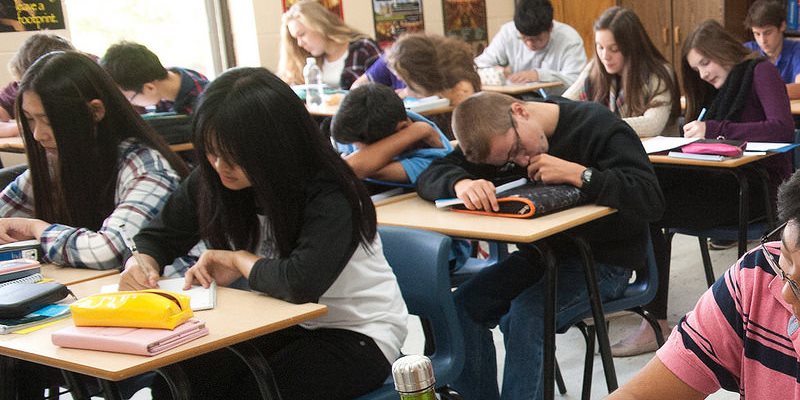More money doesn’t necessarily produce a better education

The Alberta government is providing $10 million to help Grade 1 students catch up in math and reading. This is on top of a previously announced $110 million over the next three years for students experiencing mental and academic challenges resulting from the pandemic.
Other provinces are also opening the spending taps. Last fall, the Ontario government announced it will give parents “catch-up” payments of $200 per child, which can be spent on tutoring or other academic supports. The total cost of these payments is estimated to be $365 million.
Not to be outdone, the Manitoba government recently announced a 6.1 per cent increase in total education funding, the highest increase in decades. Meanwhile, British Columbia continues to spend more on schools every year, and plans to spend $60 million on an affordability fund to ensure students have school supplies.
No doubt politicians hope all this extra money will help students recover from more than two years of pandemic-related learning loss. However, before jumping on the spending bandwagon, politicians should ask one key question: Does more money equal a better education? Not necessarily.
While countries that spend the least on education perform poorly on international assessments and do indeed improve when spending is increased, higher-education spending countries such as Canada see little benefit when they ratchet up their spending further. In other words, spending more on education leads to better results in poor countries but not in wealthier countries such as Canada. This is born out by the fact that when comparing provinces, there’s no correlation between total education spending and academic achievement.
For example, Manitoba has the third-highest spending per student in Canada. And yet, Manitoba students consistently have some of the worst results on the Programme for International Student Assessment (PISA). According to the latest PISA tests, Manitoba students came in dead last among the provinces in math and science.
As for reading, Manitoba came in second last. Only New Brunswick, a province that spends even more per student, fared worse in this category. If more money produced a better education, Manitoba and New Brunswick should be at the top of the pack. But they aren’t.
It’s also interesting to note that while B.C.’s per-student spending increased by 9 per cent from 2012/13 to 2019/20 (after accounting for inflation), that province’s PISA results declined over the same period, particularly in math. In fact, B.C.’s math scores are now worse than the national average. Clearly, all that extra money flowing to government-run schools hasn’t led to improved academic achievement.
In reality, there are plenty of ways to improve schools without spending more money. Getting woke ideology out of classrooms and focusing on traditional academics would be a great place to start. Students are in school to get an education, not to be indoctrinated. They should spend more time learning the academic basics and less time doing social justice activism.
Making schools safer by enforcing clear standards of behaviour would also be a welcome change. Too many schools are plagued with violence because administrators have the misguided notion that students should be in charge. Students cannot learn in an unsafe environment. Any school administrator who fails to prioritize student safety should not be in leadership.
Encouraging teachers to take charge of their classrooms would also do wonders to improve academic achievement. Research is clear that direct instruction is an effective way to help students learn while faddish methods such as project-based learning are often a waste of time. And knowledge-rich classrooms help students improve their reading comprehension.
Finally, incorporating more choice and flexibility into the system would empower parents to find the right school for their children. Not only that, but more competition might spur school administrators to look at what more successful schools are doing.
None of these reforms require any extra money. And yet each of them could potentially make a huge difference in the quality of education students receive. Taking more money from taxpayers might seem like the simple solution to politicians, but it certainly isn’t the correct one. The lesson of the day is that more money doesn’t necessarily equal a better education. It’s a lesson that all politicians need to learn.
Author:
Subscribe to the Fraser Institute
Get the latest news from the Fraser Institute on the latest research studies, news and events.

